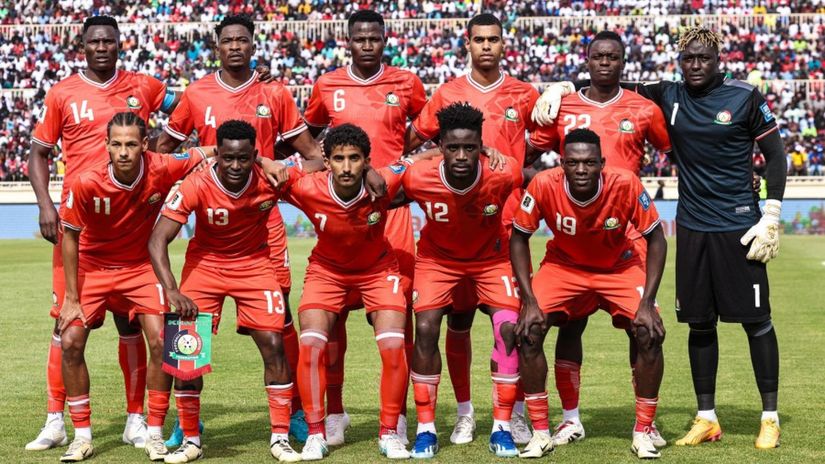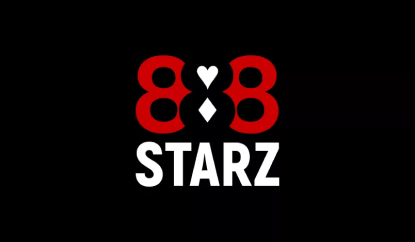The story of Harambee Stars CHAN 2024 began with excitement and a touch of trepidation, a debut on home soil, a daunting draw, and the promise of a month where Nairobi would live and breathe football. From the first whistle in August to a gutting shootout under the Kasarani floodlights, Kenya’s locally based stars carried a nation with performances full of grit, clarity, and heart.
The draw, the calendar and home turf
Kenya were placed in Group A with DR Congo, Morocco, Angola, and Zambia after a draw in Nairobi. All of Kenya’s group matches were scheduled at Moi International Sports Centre, Kasarani, a decision designed to provide consistency and a genuine home ground advantage in familiar surroundings. The tournament itself ran from August 2 to August 30, co-hosted by Kenya, Uganda, and Tanzania, with Tanzania staging the opening match in Dar es Salaam.
The hosts opened against DR Congo on Sunday, August 3 at 3.00 pm EAT at Kasarani. Four days later came Angola on Thursday, August 7 at 7.00 pm, a landmark occasion as it was the first time in over a decade that Kenya played under floodlights on home soil. Morocco followed on Sunday, August 10 at 3.00 pm, then Zambia on Sunday, August 17 at 3.00 pm, all at Kasarani. Nyayo Stadium handled other Group A games, and Nairobi was entrusted with the final on August 30, while Kampala hosted the third place match on August 29.
One game at a time becomes a rallying cry
Gor Mahia midfielder Alpha Onyango, who made his debut in June and even captained the side in a friendly win over Chad, framed the attitude that would define the group campaign. He acknowledged the weight of facing former champions straight away, then urged calm, focus, and a methodical approach that resonated within the squad and terraces alike.
“Facing former champions in the opening match will not be easy. I know Kenya will be prepared for our first match, and the task ahead. It is not an easy pool, but I know the players who will be selected will be ready to perform. The trick will be to take one match at a time.”
Onyango also highlighted the lift of playing in front of a home crowd at Kasarani, describing it as a big advantage that could push the team to perform at their peak, provided they respected every opponent and treated each game like a final.
The group of death, then an unbeaten surge
Group A was widely labeled the group of death, yet Kenya did not flinch. In a campaign that rewrote expectations, the team finished top of the pool and completed the group phase unbeaten. There were wins against DR Congo, Morocco, and Zambia, plus a draw against Angola, a sequence that secured a quarter-final place and electrified the capital.
The thread running through those matches was control, concentration, and the kind of maturity that teams often need years to grow into. The margins were fine and the performances pragmatic, yet consistently effective. The team scored in every game, though they never managed more than a single goal in a match, a detail that would later loom large in knockout football.
| CASINO | BONUS | INFO | RATING | |
|---|---|---|---|---|
|
bonus
Deposit KES 147 for up to KES 14,745 bonus + spins!
See 10 Bonuses
|
info
BK 0000683 Industry-leading software providers, over 30 casino games, BCLB license |
|||
|
bonus
Register for up to 31,400 KSH bonus on deposits!
See 12 Bonuses
|
info
No. ALSI-112310012-F15 Unique selection of slots & games |
|||
|
bonus
New players get 50 free spins and a Ksh 2500 freebet!
See 7 Bonuses
|
info
BK 0000665 PG 0000405 Good combination of online casino and betting platform |
|||
|
bonus
Welcome bonuses, free spins, and cashback await you!
See 4 Bonuses
|
info
Large welcome bonus, crypto-friendly, huge provider list. No. 1668/JAZ |
Kasarani under lights and the heartbeat of a nation
The 7.00 pm meeting with Angola marked a symbolic return to night football at home, a spectacle that fused the sound of vuvuzelas with the rhythm of Nairobi evenings. The stadium became a cauldron, and matchdays felt like festivals across the city, with Nyayo also buzzing as Group A unfolded in tandem.
Yet the tournament also delivered operational wake-up calls. Several matchdays were marred by fan trouble and ticketing issues, culminating in significant fines and remedial measures for the federation. Among the key concerns, documented during the campaign, were:
- Security breaches before matches with fans forcing entry and gates broken,
- Kasarani exceeding capacity during the Morocco game with areas like the media tribune encroached,
- The federation incurring a 50,000 dollar fine for the Morocco fixture and a total of about 9 million shillings in penalties.
Ticketing also became a flashpoint. Only online ticketing was permitted for CHAN events, but systems reportedly malfunctioned at key moments and bots were said to have bulk-purchased tickets, which were then resold at inflated prices outside the gates. CAF and the Local Organising Committee responded by pushing fan sensitisation and setting up fan zones in Nairobi, steps that helped steady the situation as the tournament progressed.
The Benni effect and belief returns
Appointed in March, head coach Benni McCarthy gave the team a clear identity and a renewed voice. Players spoke of a lift in confidence and a style built on courage and enjoyment without losing structure. Ulinzi Stars forward Boniface Muchiri summed up the mood post-tournament, crediting the coach with restoring belief and professionalism in the group.
“I’m happy to be part of the current squad that can make fans believe. Our coach has made people believe in the team because he has instilled confidence in us, we play with a lot of confidence. He tells us to go out there and enjoy football.”
The respect was echoed by Victor Wanyama, who praised the team’s heart and McCarthy’s impact after the quarter-final exit, sentiments that mirrored the country’s pride in a side that brought fans back in their thousands and carried themselves with class.
Breakout performances and new heroes
Every tournament writes new names into a nation’s memory. KCB FC utility man Manzur Okwaro was one of Kenya’s revelations, earning public praise from McCarthy, who called him a gem. Deployed centrally in midfield despite being a defender by trade, Okwaro’s composure and versatility made him a key figure in the run to the last eight, and his displays have already drawn interest from beyond Kenya’s borders.
Boniface Muchiri’s tournament was a study in influence. He featured in all five Kenyan games, assisting against Zambia and again in the quarter-final against Madagascar with the free-kick that Alphonce Omija headed in. He was instrumental in a disallowed Ryan Ogam goal against Madagascar, and his form and leadership were recognised beyond football as he earned a promotion within the Kenya Defence Forces from private to corporal, an upgrade shepherded by captain Abud Omar’s advocacy.
The quarter-final that gripped the country
Few nights have held Kasarani as tightly as the Friday quarter-final against Madagascar. Kenya led through Omija’s header, the stadium in full voice, only for the visitors to level from the penalty spot. After 120 breathless minutes, it came down to penalties, where Madagascar prevailed 4-3 after Omija’s attempt, brave but fateful, was saved and Toky Rakotondraibe converted the decisive kick.
McCarthy’s post-match words mixed pride with realism. He lauded the effort and the togetherness, then bemoaned the missed chances that could have sealed the game inside regulation time. He framed the defeat as part of football’s unforgiving lottery, a lesson that strong teams absorb and use to fuel the next climb.
“Nothing but proud of what we achieved. The players gave everything every single day in training and every match. It could have been anyone’s game. When you miss your chances at the end of the day you are punished. The lottery of penalties sometimes does not go your way.”
Tactical debates and hard lessons
No compelling campaign is free of scrutiny. After the exit, a chorus of analysis greeted team selections and in-game management. There was surprise at Austin Odhiambo starting on the bench and not appearing at any stage, including the shootout, given his creativity and penalty pedigree at club level. Substitutions that removed Ryan Ogam and Muchiri, who had been among the biggest attacking threats, were also questioned for blunting Kenya’s edge.
There was further debate about two off days granted after the Morocco win. Some felt a shorter break inside camp would have been preferable, since distractions around transfers and external activities emerged during that period. Then came the penalty shootout, where all five Kenyan attempts were taken by defenders, a departure from the norm that raised questions about the mental readiness of the attackers in that crucible.
Numbers that tell a story
Kenya left the tournament with three wins and two draws from five matches. They beat DR Congo, Morocco, and Zambia, drew with Angola, and then drew 1-1 with Madagascar before the shootout. The team scored in every match, yet, as the head coach pointed out, never more than once, a statistic that underlined both strength and a clear area for growth.
There were tangible rewards too. Quarter-finalists are set to receive approximately 58 million shillings in CAF prize money, while President William Ruto pledged a 5 million shilling bonus for the players, recognition of a group that made the country proud and reawakened a football culture that thrives when the national shirt is worn with conviction.
What comes next
The focus now shifts to the 2026 World Cup qualifiers, with matches against The Gambia and Seychelles next on the calendar in early September. Several CHAN standouts are expected to carry their form into those fixtures, and the belief cultivated over August will be the starting point rather than the ceiling. The longer view remains AFCON 2027, which Kenya will co-host with Uganda and Tanzania, and this tournament has provided a blueprint for what Kenya can be at home with clarity, courage, and cohesion.
Quick look at Kenya group fixtures
- Kenya vs DR Congo, Sunday, August 3, 3.00 pm,
- Angola vs Kenya, Thursday, August 7, 7.00 pm,
- Kenya vs Morocco, Sunday, August 10, 3.00 pm,
- Zambia vs Kenya, Sunday, August 17, 3.00 pm.
Why this campaign matters
It was the first time the tournament came to Kenyan soil, a stage for domestic-league players to test themselves in front of family, friends, and a country hungry for footballing purpose. It brought together working parts from Gor Mahia, Ulinzi Stars, KCB FC, and the wider league, and it showed how far cohesion and bravery can take a team under pressure.
The flaws were visible, and the lessons are invaluable. Security and ticketing protocols must be robust, squad management must balance freedom with focus, and the team must find a way to turn pressure into a second goal when the moment demands it. Yet the essence of the journey was this, Kenya proved they belong at this level, and with a coach who has reconnected the team to its public, the horizon feels inviting.
The lights at Kasarani eventually dimmed on a shootout that went the other way, but the echoes remain, the chants, the flags, the players who walked toward the supporters with heads high. If the measure of a team is the ground it covers between expectation and achievement, then this campaign was a leap, and the landing, even with the sting of penalties, sets the stage for an even bigger stride.










